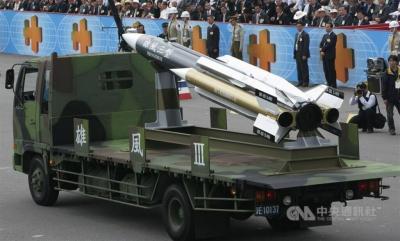A Ministry of Labor study published yesterday showed that 37 percent of Taiwanese worked overtime last year, down 4.6 percentage points compared with the previous year.
This year’s edition of the annual government survey on the living standards and working conditions of Taiwanese workers was conducted in June and July last year with 4,085 valid responses.
The ministry said in a news release that although the percentage of Taiwanese who worked overtime dropped, the average number of extra hours they worked increased to 14.7 hours per month.

Photo: Taipei Times
However, 25.5 percent of workers were contacted for work-related issues after work hours, up 1 point from a year earlier.
Government personnel and military service members are most likely to work overtime at 53.3 percent, followed by highly skilled service workers at 51 percent per month, it said.
Manufacturing, real estate, and agriculture and fisheries workers put in the most amount of overtime at 20.4 hours per month, 18.8 hours per month and 18.3 hours per month respectively, the ministry said.
The share of employees who reported being compensated with bonuses or vacation time for extra work was 85 percent, slightly up by 0.7 points from the previous year.
Real estate was the sector least likely to compensate workers for overtime work, with 33.7 percent of its workers reporting not receiving compensation, the ministry said.
Content creation, finance and insurance, technical support and the Ministry of Education failed to pay more than 20 percent of their employees for overtime work, the Ministry of Labor said.
The study found that 74.6 percent of respondents reported being satisfied with their working conditions, while dissatisfied workers were most likely to be unhappy about issues related to a lack of advancement opportunities, pay and inadequate training.
Most workers support keeping the five-day workweek, with 46.5 percent of respondents favoring flexible days off and 41.8 percent favoring designating Saturday and Sunday for rest, it said.
Additional reporting by Lee Chin-hui

STATS: Taiwan’s average life expectancy of 80.77 years was lower than that of Japan, Singapore and South Korea, but higher than in China, Malaysia and Indonesia Taiwan’s average life expectancy last year increased to 80.77 years, but was still not back to its pre-COVID-19 pandemic peak of 81.32 years in 2020, the Ministry of the Interior said yesterday. The average life expectancy last year increased the 0.54 years from 2023, the ministry said in a statement. For men and women, the average life expectancy last year was 77.42 years and 84.30 years respectively, up 0.48 years and 0.56 years from the previous year. Taiwan’s average life expectancy peaked at 81.32 years in 2020, as the nation was relatively unaffected by the pandemic that year. The metric

Taiwan High Speed Rail Corp. (THSRC) plans to ease strained capacity during peak hours by introducing new fare rules restricting passengers traveling without reserved seats in 2026, company Chairman Shih Che (史哲) said Wednesday. THSRC needs to tackle its capacity issue because there have been several occasions where passengers holding tickets with reserved seats did not make it onto their train in stations packed with individuals traveling without a reserved seat, Shih told reporters in a joint interview in Taipei. Non-reserved seats allow travelers maximum flexibility, but it has led to issues relating to quality of service and safety concerns, especially during

A magnitude 5.1 earthquake struck Chiayi County at 4:37pm today, the Central Weather Administration (CWA) said. The hypocenter was 36.3km southeast of Chiayi County Hall at a depth of 10.4km, CWA data showed. There were no immediate reports of damage resulting from the quake. The intensity of the quake, which gauges the actual effect of a seismic event, measured 4 in Chiayi County, Tainan and Kaohsiung on Taiwan's seven-tier intensity scale, the data showed. The quake had an intensity of 3 in Chiayi City and Yunlin County, while it was measured as 2 in Pingtung, Taitung, Hualien, Changhua, Nantou and Penghu counties, the data

The Supreme Court today rejected an appeal filed by former Air Force officer Shih Chun-cheng (史濬程), convicted of Chinese Communist Party (CCP) espionage, finalizing his sentence at two years and two months for contravening the National Security Act (國家安全法). His other ruling, a ten-month sentence for an additional contravention, was meanwhile overturned and sent to the Taichung branch of the High Court for retrial, the Supreme Court said today. Prosecutors have been notified as Shih is considered a flight risk. Shih was recruited by Chinese Communist Party (CCP) intelligence officials after his retirement in 2008 and appointed as a supervisor